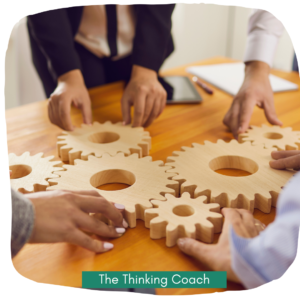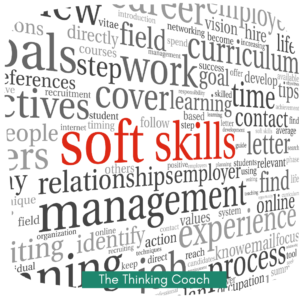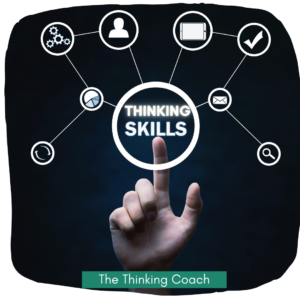Table of Contents
In a world that is changing rapidly, especially over the past decade, corporate leadership (CL) training must adapt to keep pace. With the rise of technology and the internet providing instant access to information, millennials and younger generations are more connected, knowledgeable, and adaptable than ever before. As a result, corporate leadership must evolve to meet the demands of this new era.
To remain effective, CL training must go beyond traditional approaches. It should reflect the modern workplace’s dynamic and fast-paced nature, encouraging leaders to adopt new ways of thinking, collaborating, and inspiring their teams. This shift in focus will be essential for developing the type of leadership that is relevant and effective in the 21st century.
Key #1: A Quick Glimpse at the Reality of Corporate Leadership
In the face of these unprecedented changes, many leaders struggle to keep up. Despite the obvious shifts in how people work, communicate, and engage, corporate leadership often lags behind in adopting new approaches. Too many leaders remain stuck in outdated paradigms that no longer serve the needs of a modern workforce.
he failure to recognize the necessity for change is partly due to entrenched leadership styles that resist self-reflection and adaptation. CL requires a deep understanding of how to evolve, yet many leaders fail to address the gaps in their skills or approaches. Instead of focusing on the past or on what used to work, leaders must embrace new strategies that reflect current realities.
Key #2: What Can Be Done to Improve CL?
Traditionally, corporate leadership training has focused on teaching the “how” of tasks, particularly in relation to hard skills such as strategy, management, and technical expertise. While these are still necessary, the demands of CL have expanded. The most critical shift now involves integrating soft skills—those that foster collaboration, creativity, and effective communication.
Corporate leadership in the 21st century requires leaders who can foster a positive team environment, encourage innovative thinking, and guide others through the complexities of today’s work environment. It is not just about achieving results through command and control; it is about collaboration, empathy, and vision. Leaders must adapt to a world where soft skills such as emotional intelligence, interpersonal communication, and team-building are as important as hard skills.
Key #3: The Importance of Soft Skills
Soft skills are no longer optional in corporate leadership—they are essential. These skills, which include decision-making, emotional intelligence, critical thinking, and interpersonal communication, are vital for creating cohesive teams and fostering a productive work environment. Without soft skills, organizations risk becoming stagnant and ineffective.
While hard skills are quantifiable and easier to measure, soft skills often go unnoticed or undervalued. However, the lack of these skills can have a profound impact on an organization’s overall performance. Poor decision-making, low morale, and high employee turnover can all be traced back to deficiencies in soft skills. For CL to be effective, leaders must prioritize these human-centered skills and understand their role in organizational success.
Key #4: The Role of Thinking Skills
Among the soft skills required for corporate leadership, thinking skills stand out as fundamental. Effective thinking involves understanding the present situation, gathering unbiased information, and making decisions based on reasoned analysis. Leaders need to think strategically about their actions and the long-term impact on their teams and organizations.
For CL to thrive, leaders must develop a mindset that prioritizes reflection over reaction. Rather than jumping into “how to do something,” leaders should first ask themselves how to think about the issue at hand. This shift in approach can lead to more thoughtful, effective decisions and strategies that are aligned with the broader goals of the organization.
Key #5: What People Need from Corporate Leadership Today
Corporate leadership is evolving. Gone are the days when leaders could simply issue directives and expect their teams to follow without question. Today’s employees seek more from their leaders. They want leaders who have core values, who are transparent, and who genuinely care about their well-being. CL must now be about inspiring and empowering teams, not just managing tasks.
Employees today expect their leadership to provide an environment where they can thrive—an environment that values them as individuals and supports their professional growth. Leaders who fail to recognize this shift will struggle to maintain engagement and productivity within their teams. Authenticity, responsibility, and respect are the pillars of modern corporate leadership, and leaders must embody these qualities to be effective.
Key #6: The Power of Positive Thinking 
A critical, yet often overlooked, component of corporate leadership is the power of positive thinking. Many still dismiss positivity as irrelevant to the business world, but in reality, it can transform organizations. Positive thinking fosters a culture of optimism and resilience, allowing leaders and teams to navigate challenges with a solution-oriented mindset.
CL that embraces positivity can drive incredible results. It shifts the focus from problems to possibilities and can inspire teams to work together more effectively. In the 2008 U.S. election, for example, Barack Obama’s positive messaging was instrumental in his victory, showing that positivity is not just a feel-good strategy but a powerful tool for leadership success.
Key #7: Strategic Thinking in Corporate Leadership
Strategic thinking is another essential component of corporate leadership. This skill involves understanding the bigger picture and planning ahead to navigate potential challenges. In a world where change is constant, CL must be proactive rather than reactive. Leaders need to be strategic planners who anticipate future needs and adjust their strategies accordingly.
Strategic thinking allows CL to guide organizations through uncertainty. By cultivating this skill, leaders can ensure that their decisions align with the long-term goals of the company and create a roadmap for success.
Finally: The Future of CL
In today’s rapidly evolving corporate world, the demand for effective leadership is higher than ever. To stay ahead, leaders must embrace the shift toward soft skills, strategic thinking, and positive leadership practices that truly resonate with their teams.
The future lies in the development of soft skills and a deeper understanding of how to lead with empathy, positivity, and strategic foresight. The Thinking Coach’s Corporate Leadership Training focuses on these critical areas, helping leaders develop the human-centered skills needed to inspire and engage their teams effectively.
By focusing on soft skills such as strategic thinking, positive leadership, and emotional intelligence, CL can create healthier, more productive organizations that thrive in the 21st century.
If you’re ready to take your CL to the next level and inspire your organization to achieve new heights, now is the time to invest in comprehensive leadership training.
Empower yourself and your team by developing the skills that will define success in the 21st century.
Contact The Thinking Coach today to explore how our tailored leadership training programs can help you drive real, lasting change in your organization. The future of corporate leadership starts with you—take the first step now!



Thanks for this inspiring Article. It really brought to fore that leadership is not for yourself but for the greater good of the society.
I am really starting to think of the taking a leadership training course. Prior to this moment I didn’t know I needed one. So thanks for this eye-opening, thought provoking and informative article.
you are welcome!
i provide one on one leadership mentoring on skype, world-wide so if you are interested please let me know
Cheers
Eli
Pingback: Discover How EQ & Strategic Thinking Combine For Great Leadership
Pingback: Having Good Leadership Qualities Will Make You A Much Better Manager
Pingback: Leadership Development & The Manufacturing Industry
Pingback: How To Think Outside The Box